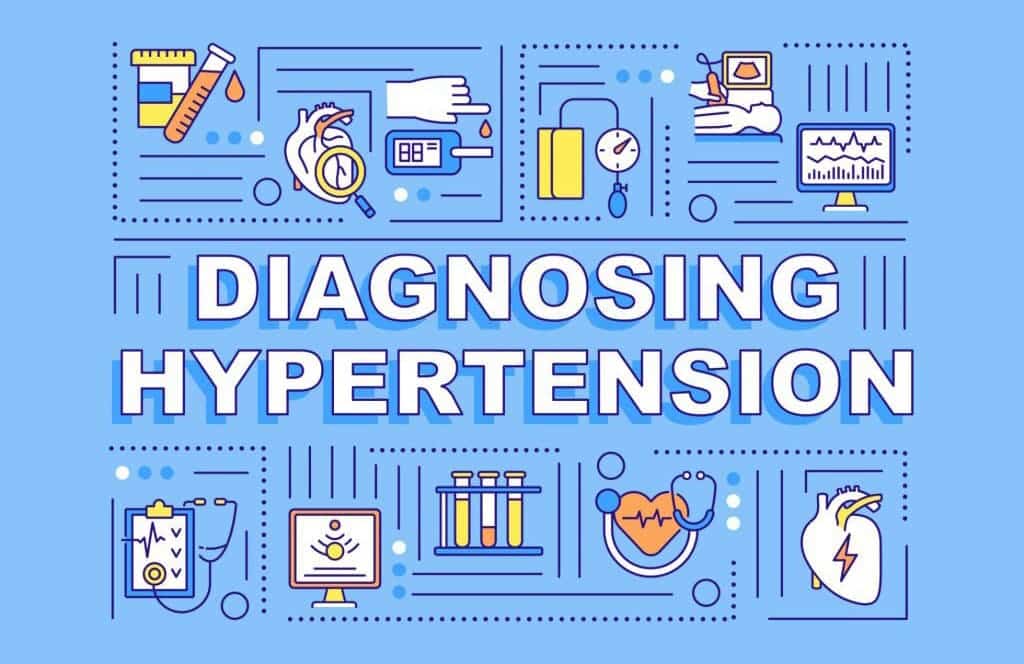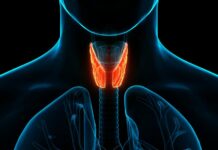High blood pressure (HB or HTN) is a condition in which the force of blood against the walls of your arteries is consistently too high. It can lead to serious health complications and even death if left unchecked.
The primary risk factor for developing hypertension is age. High blood pressure affects up to 25% of people aged 65 years and older. It is one of the leading causes of heart failure, stroke, and other life-threatening diseases.
High blood pressure rarely has any obvious symptoms. That's why many people are unaware that they have it until their doctor shares the news with them after a routine checkup.
However, there are some clues you can look out for that may suggest high blood pressure – especially if you have risk factors such as being overweight, having diabetes, or having a family history of hypertension.
Detecting High Blood Pressure: Are You at Risk?
High blood pressure is a silent killer – it doesn't cause any symptoms until serious damage has already been done.
That's why it is so important to regularly monitor your blood pressure and get it checked if it is too high.
The risk of developing high blood pressure increases with age. It is more common in people who are obese, diabetic or have kidney disease, metabolic syndrome, or chronic inflammatory diseases such as arthritis.
The first step toward detecting and preventing high blood pressure is understanding your risk factors. You are at higher risk of developing high blood pressure if you:
- are middle-aged or older: The risk of high blood pressure increases with age as the risk factors increase with age as well.
- have a family history of high blood pressure: If your parents or grandparents had/have hypertension, your risk is higher as well.
- are overweight or obese: Extra fat around your body puts extra pressure on your blood vessels, which can lead to an increase in blood pressure.
- have diabetes: People with diabetes often experience high blood pressure.
- have a sedentary lifestyle: Lack of exercise increases your risk of high blood pressure.
- are a smoker: Smoking has been proven to increase blood pressure.
If you are in one of these groups, you should regularly monitor your blood pressure to catch any early issues before they become more serious. You can do this at home with a simple blood pressure monitor.
Get to Know Your Numbers
High blood pressure is usually measured in terms of two numbers – systolic and diastolic.
The systolic number refers to the pressure in the arteries when the heart pumps blood out. The diastolic number is the pressure when the heart is at rest.
The American Heart Association recommends measuring blood pressure in both arms to get an accurate reading.
A blood pressure reading is a combination of two numbers, the systolic blood pressure and the diastolic blood pressure. To properly manage your blood pressure, you should know your numbers, but don’t just look at these two. Your blood pressure reading is more than just two numbers.
Four numbers make up your blood pressure reading. These numbers are meant to be read as a fraction:
- the top number is your blood pressure when your heart beats (systolic blood pressure), and
- the bottom number is your blood pressure when your heart is at rest (diastolic blood pressure).
Blood pressure is recorded in units of millimeters of mercury (mm Hg). If your blood pressure is 140/90 or above (which is considered high), then you have hypertension.
What Are Normal Blood Pressure Numbers?
Normal blood pressure numbers vary from person to person. However, the average blood pressure reading is 120/80 mm Hg.
If you have normal blood pressure readings but have other risk factors for developing high blood pressure, you may be diagnosed with prehypertension, a hypertension risk factor.
Prehypertension is when your blood pressure is between 120/80 mm Hg and 139/89 mm Hg. It is not a disease but a sign that your blood pressure is rising.
In general, your blood pressure reading should be monitored by your physician if you have one or more risk factors for hypertension.
The Symptoms and Warning Signs
The symptoms of high blood pressure are not always obvious, even though it is a serious condition. The warning signs of high blood pressure include:
- Headaches: Some people with high blood pressure report headaches as a symptom.
- Weakness or fatigue: Feeling tired or worn out even after a short period of activity may indicate high blood pressure.
- Shortness of breath: If you feel short of breath during exercise or even while lying down, it may be a sign of high blood pressure.
- Pain in your abdomen: A cramping pain in your abdomen could be a symptom of high blood pressure.
- Fatigue: Feeling overly tired is a common symptom of high blood pressure.
- Sores that don't heal: If you have sores that don't heal, ingrown toenails, or other signs of poor circulation, it may be caused by high blood pressure.
- Nosebleeds: Nosebleeds are a warning sign of high blood pressure.
The only way to accurately determine whether your blood pressure is too high is by measuring it at home or at the doctor's.
You can get a home blood pressure monitor from most pharmacies or online stores like Amazon – they are quite affordable, easy to use, and can be used regularly to keep track of your health.
If your blood pressure is too high, it can lead to a number of serious health issues.
The Dangers of High Blood Pressure
The dangers of high blood pressure are numerous. If left untreated, it can cause many serious complications and even lead to death, as it is one of the major risk factors for heart disease, heart attacks, and stroke.
Heart disease – High blood pressure significantly increases your risk of heart disease. When the arteries that supply blood to the heart are narrowed due to high blood pressure, the heart has to work harder to pump blood through the body. This can lead to heart attacks, heart failure, and even death.
Brain damage – When blood pressure is too high, it can lead to damage in the brain, which may result in memory problems, inability to concentrate, confusion, and depression.
Stroke – The blood clots from high blood pressure can travel to the brain and cause a stroke.
Kidney failure – As already mentioned above, one of the most severe complications of high blood pressure is kidney failure, which can be caused both by high blood pressure and diabetes.
Vision loss – High blood pressure can cause damage to the blood vessels in the eyes, which can result in vision loss.
Death – If left untreated, high blood pressure can lead to death.
How to Check Your Blood Pressure Correctly
One of the most important things you can do to monitor your blood pressure is to check it at home. You can do so by purchasing a blood pressure monitor. Always follow the manufacturer's instructions to get an accurate reading.
- Take your blood pressure when you're relaxed. Avoid taking the measurement right after exercise or before bed, as both activities have been linked with increased blood pressure.
- Measure your blood pressure in both arms. Since blood pressure can vary from one arm to the other, it is important to measure it in both arms.
- Use the same device each time. Any device you use should be properly calibrated, and you should use the same device each time.
- Wear loose clothing and try to sit upright. The blood pressure cuff should be put around your bare arm and not over clothing, and you should sit upright (e.g., avoid lying down).
What Are the Causes of High Blood Pressure?
The causes of high blood pressure are not always known. However, there are certain factors that can contribute to it. Some of them are listed below:
- High sodium intake: Sodium is a mineral that's found in many foods and is necessary for proper bodily functions. However, too much sodium in your diet can increase your blood pressure.
- Obesity: Excess fat around your body puts extra pressure on the blood vessels, which can lead to an increase in blood pressure.
- Not enough exercise: People who lead a sedentary lifestyle tend to have a higher blood pressure than those who exercise regularly.
- Aging: As you grow older, your risk of developing high blood pressure increases.
- Genetics: If your family has a history of high blood pressure, you may also be at higher risk for it.
How to Prevent and Manage Hypertension?
There are many ways to prevent high blood pressure and help manage it if you have it. Some of them are listed below:
Watch your diet and exercise
Exercising regularly can help lower your blood pressure and ward off other health complications caused by hypertension.
But hypertension is one of the few medical conditions for which diet is just as important.
In fact, some studies show that eating a balanced diet is just as important as physical activity when it comes to managing blood pressure.
A diet rich in fruits, vegetables, whole grains, and legumes can help lower blood pressure by as much as 16 points.
Take care of your stress levels
Studies have shown that people who deal with high stress on a regular basis are more likely to develop high blood pressure.
While it may seem impossible to rid yourself of all stress, you can do a few simple daily activities that help reduce your stress levels and make your blood pressure go back to normal.
Exercising regularly is one of the best ways to reduce stress. Other activities to try include reading, meditating, or spending time with friends and loved ones.
Use natural supplements
Eating a healthy diet is a great way to keep your blood pressure in check, but for some, it may not be enough. In that case, you may want to consider taking supplements.
Some supplements have been found to reduce blood pressure naturally and without any side effects.
Hawthorn, for instance, has been used since ancient times to treat heart conditions and lower blood pressure.
Siberian Ginseng has also shown promise as a natural blood pressure reducer.
Try Essential Oils
Essential oils are extracted from plants and flowers for various purposes, such as aromatherapy, beauty, cleaning, and healing.
In recent years, essential oils have gained popularity as a treatment for a variety of conditions, including hypertension.
Some essential oils that can help lower blood pressure include Black Pepper, Eucalyptus, Peppermint, Frankincense, and Lavender.
Learn TM and breathe easy
Meditation has been shown to reduce stress significantly, and reduced stress is one of the best ways to manage high blood pressure. And it’s not just for long-time practitioners.
It’s possible for just about anyone to learn meditation and see its benefits, including lower blood pressure.
You can practice simple breathing exercises that are a type of meditation. If you have high blood pressure, this can be an important tool to help control it.
Bottom Line
High blood pressure is a serious condition that requires prompt attention. If left untreated, it can cause serious health complications.
The key to effectively managing your blood pressure is to be aware of the signs and symptoms of hypertension and to get your blood pressure checked regularly.
These steps can help you detect high blood pressure early on and reduce your risk of developing serious health complications as well as death.
If you have hypertension, you can reduce your risk of complications by making healthy lifestyle choices and taking medication as prescribed by your doctor.






